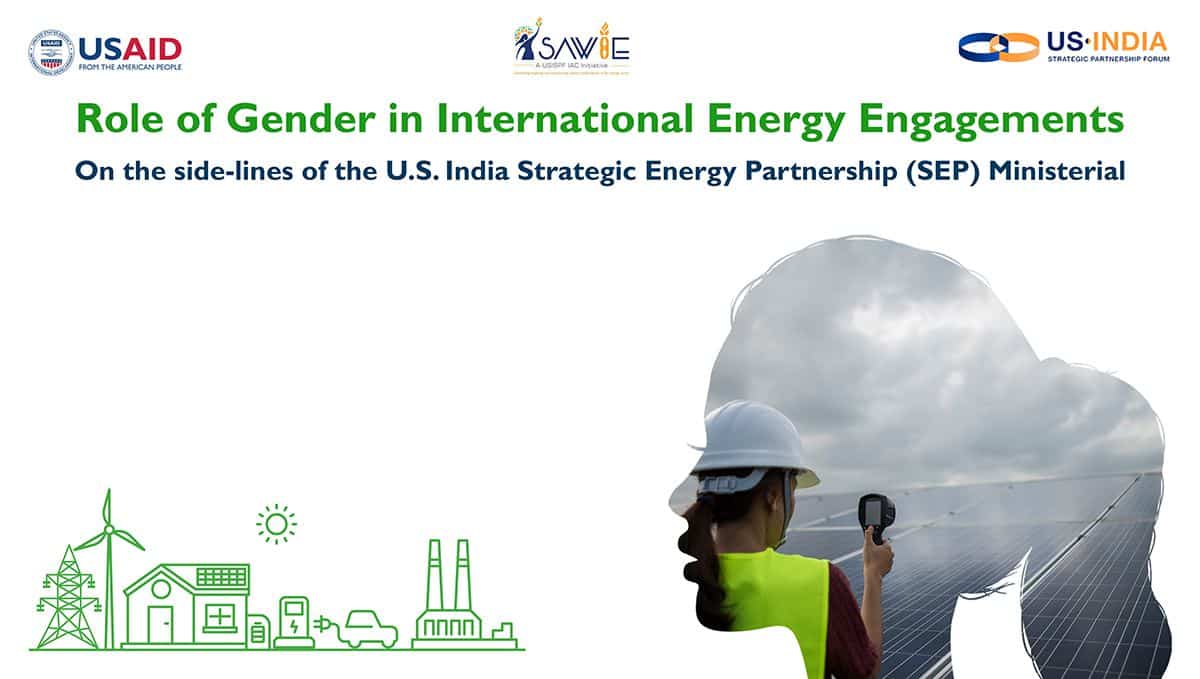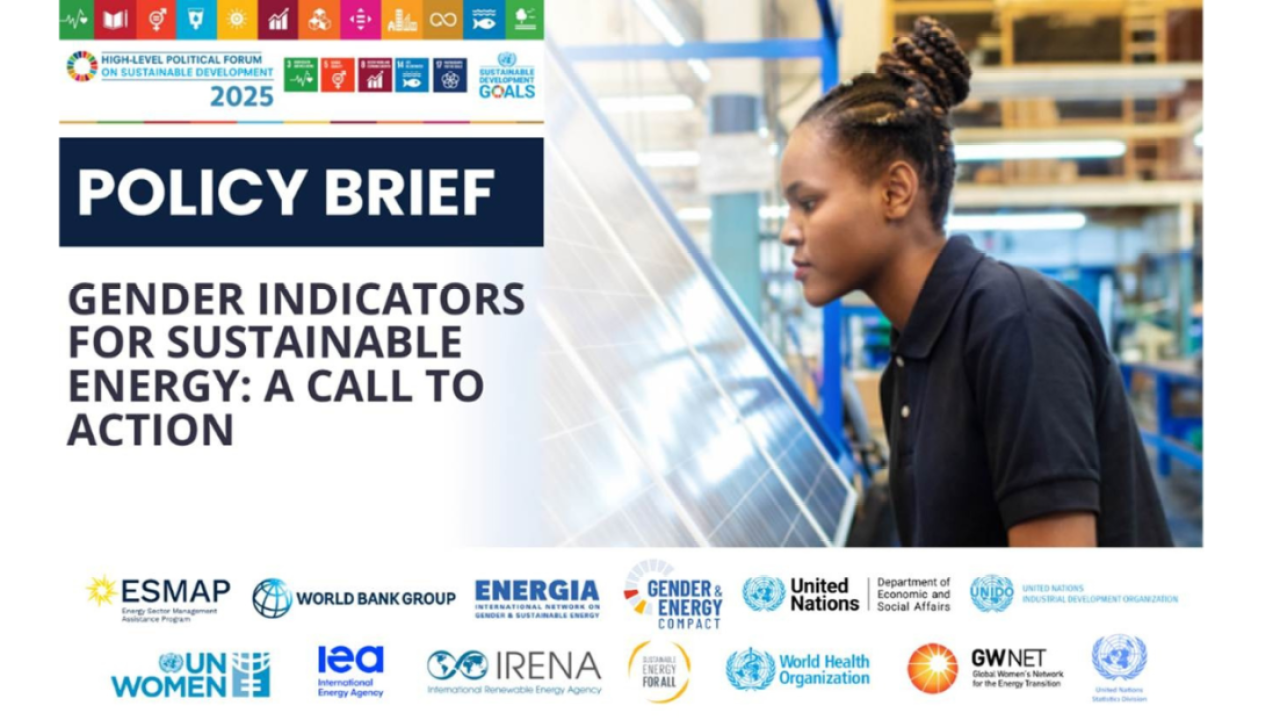While gender equality has made numerous big and small gains in many industries, the power sector remains disconcertingly male dominated. As nations prepare to seize the opportunities of energy transformation, creation of a gender-responsive clean energy ecosystem with growing opportunities for women to formally participate at all levels in the energy sector will be pivotal. This area of critical relevance to the growth journey of India and the South Asia region was discussed at length in a virtual event, held on July 15, 2020, with the theme ‘Role of gender in international energy engagements’. The high-level dialogue was conducted on the side-lines of the U.S. India Strategic Energy Partnership (SEP) Ministerial. The event was organized by South Asia Women in Energy (SAWIE), a joint initiative of USAID and the U.S.-India Strategic Partnership Forum (USISPF). The SAWIE promotes women leaders and mainstream gender discussions in the energy sector.
Women leaders from public and private, conventional and renewable energy sectors joined the deliberation, alongside development partners, implementing agencies, and other energy sector experts, to discuss simple and creative ways to bridge the gender divide in energy. The webinar also marked the release of a knowledge paper ‘Bridging the Gender Diversity Gap in the Energy and Industrial Sector: Best Practices in Gender Mainstreaming’. Developed by SAWIE’s knowledge partner Spencer Stuart, the paper presents insights on key best practices that when replicated can help create an enabling environment for a gender balanced workplace. BSES Yamuna Power Limited (BYPL), a SAWIE member, shared its experience, success and further commitment in replicating some best practices from the paper presented to mainstream women in its operations.
Calling gender equality the catalyst for transforming women’s agency, families, communities, and nations, Michael Satin, Director of the Clean Energy and Environment Office in USAID/India, highlighted the need for integrating women at all levels. “As we look to diversify the workforce, we must ensure it happens both at the top of the power sector pyramid as well as the bottom, at the end user level, with women in households and communities,” Satin stressed. Powerful solutions to this end were suggested by women leaders in the esteemed panel: Vaishali Nigam Sinha, Chief CSR, Sustainability & Communications Officer, ReNew Power, Chairperson SAWIE; Meagan Fallone, CEO, Barefoot College International; Kathleen Alana McGinty, Vice-President, Global Government Relations, Johnson Controls; and Nishi Vasudeva, Former CMD, HPCL. Championing women at workplace, providing them paid internships and role models, setting up a portal for women to access job openings at energy companies, encouraging assertiveness, and use of gender diversification as a metric to rank companies and management performance were among the key suggestions. To ensure change at the last mile, the need for giving non-formally educated women the competence, confidence, and self-belief to operate as energy sector entrepreneurs was also highlighted.
Conducted just before the U.S.-India Ministerial, the webinar proved a timely and critical discussion on what is needed to bridge the gender gap in the power sector. In addition to the rich insights it generated, the webinar also enabled a reaffirming of resolve by key stakeholders to take the gender dialogue forward. This commitment was reiterated in the keynote address by the Chief Guest, Elizabeth Urbanas, Deputy Assistant Secretary (DAS), U.S. Department of Energy (DOE): “The U.S. Government has had a long-standing engagement with India. As we work to address the energy problems of both countries, we will continue to push for ensuring more women in the power sector.”
USAID is supporting the SAWIE platform through its ‘Greening the Grid-Renewable Integration and Sustainable Energy (GTG-RISE), central component of Greening the Grid (GTG), a bilateral initiative with the Ministry of Power. GTG-RISE is a key initiative under USAID’s Asia EDGE (Enhancing development and Growth through Energy) and is implemented by Deloitte Consulting.
To access the webinar recording, please click here.







